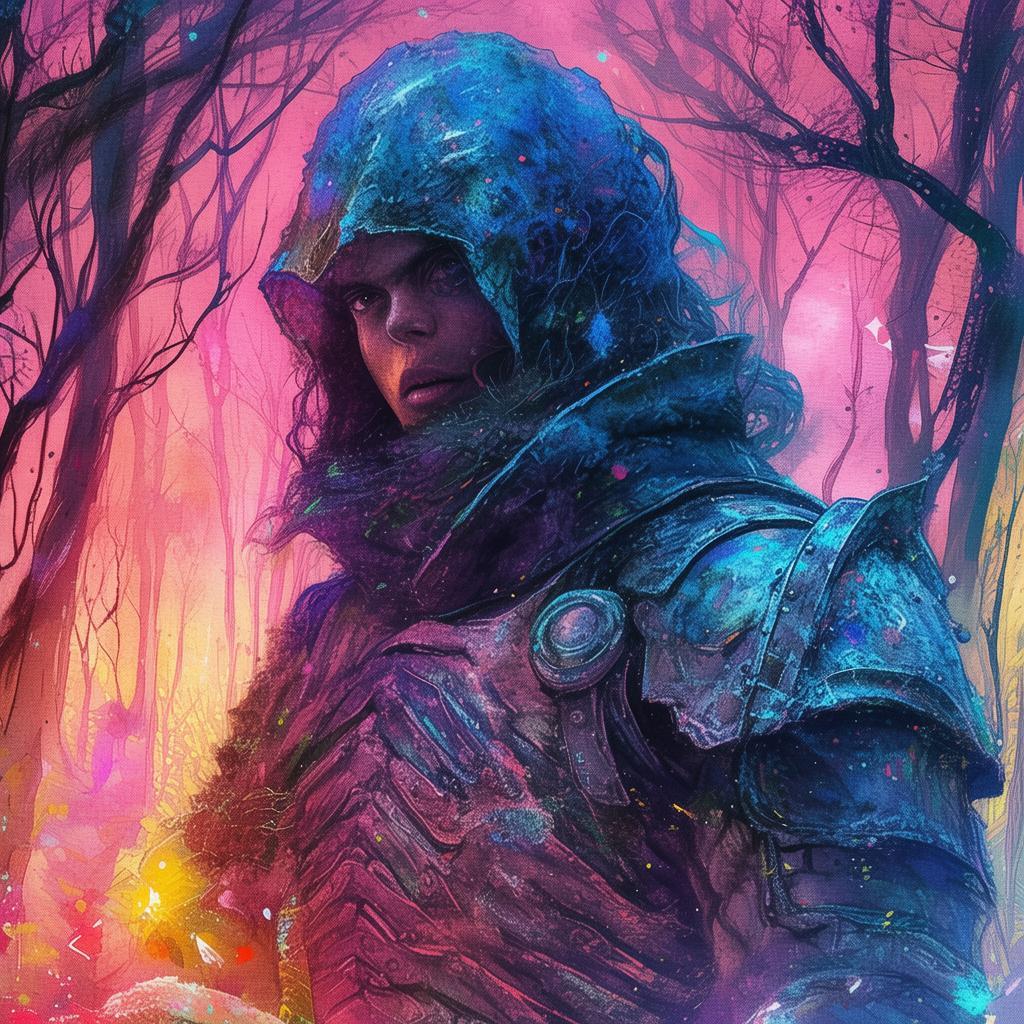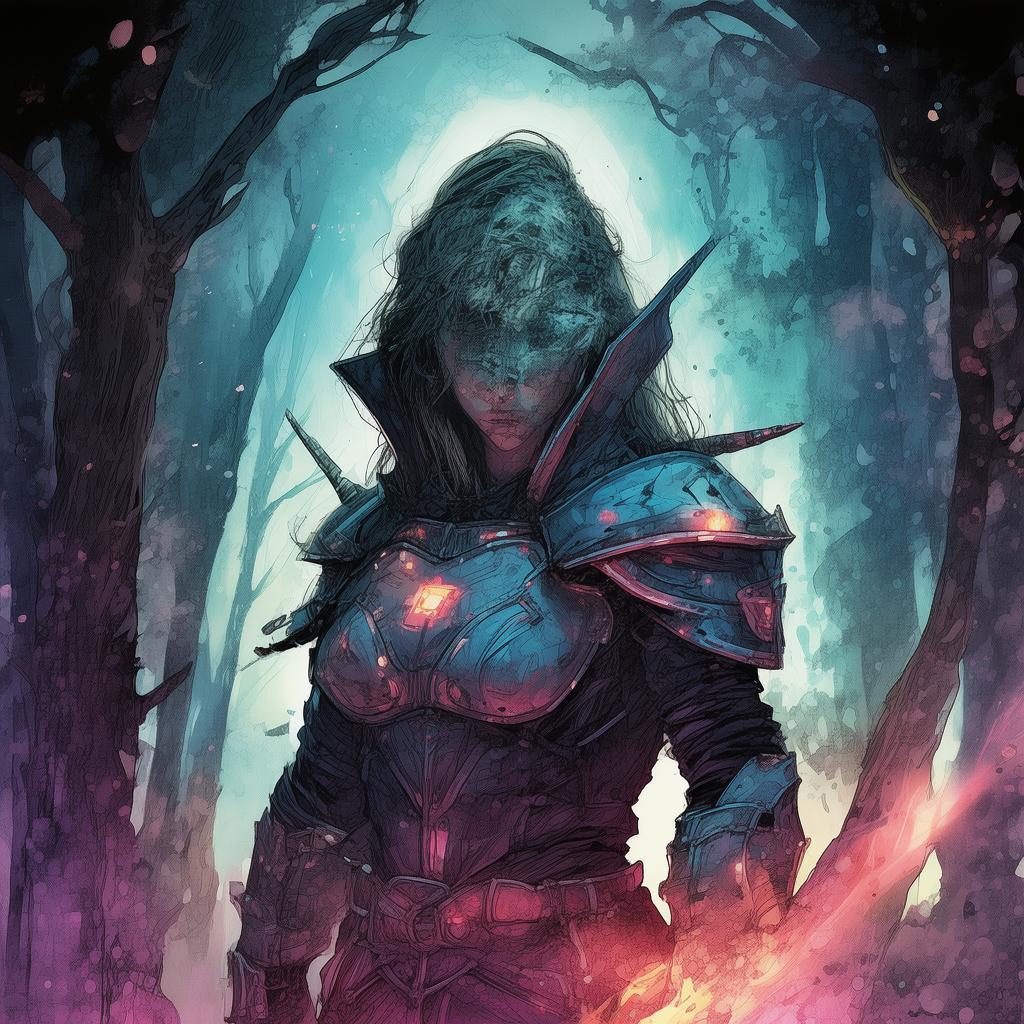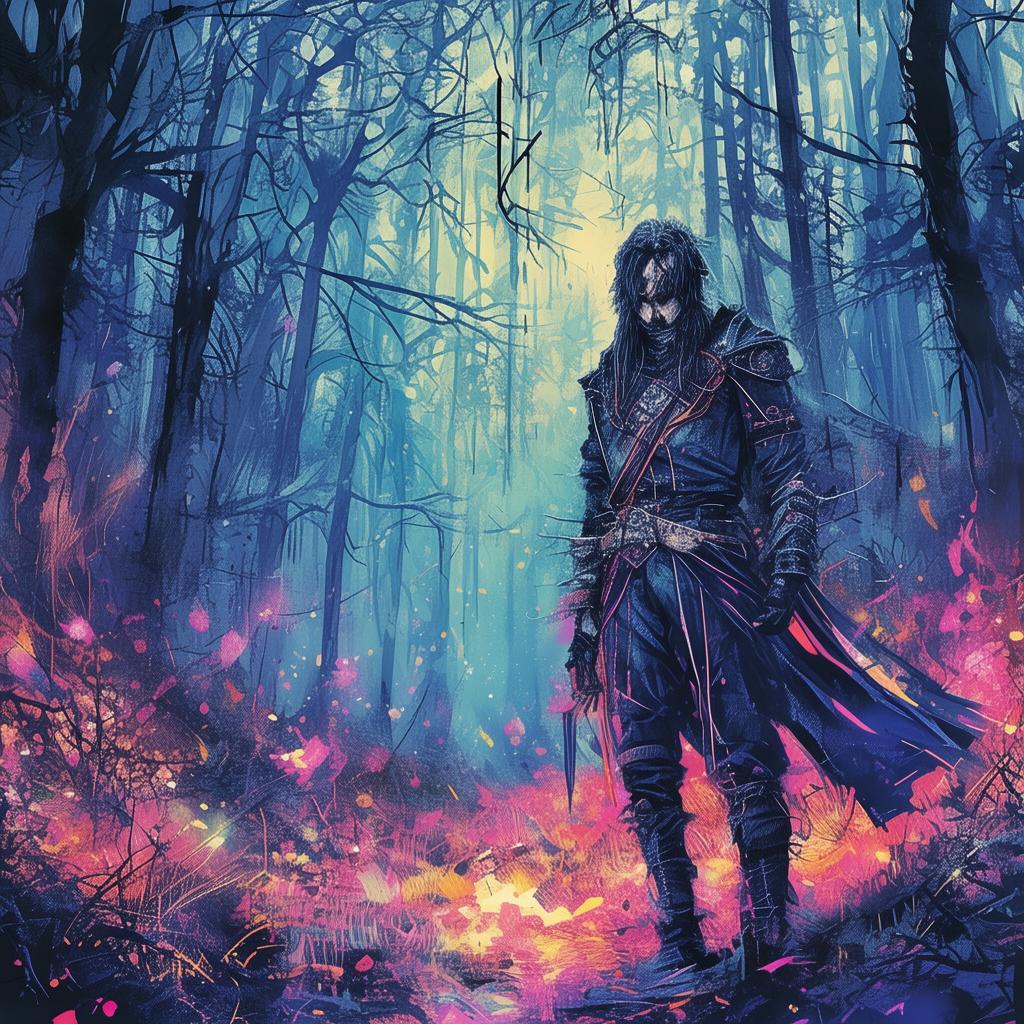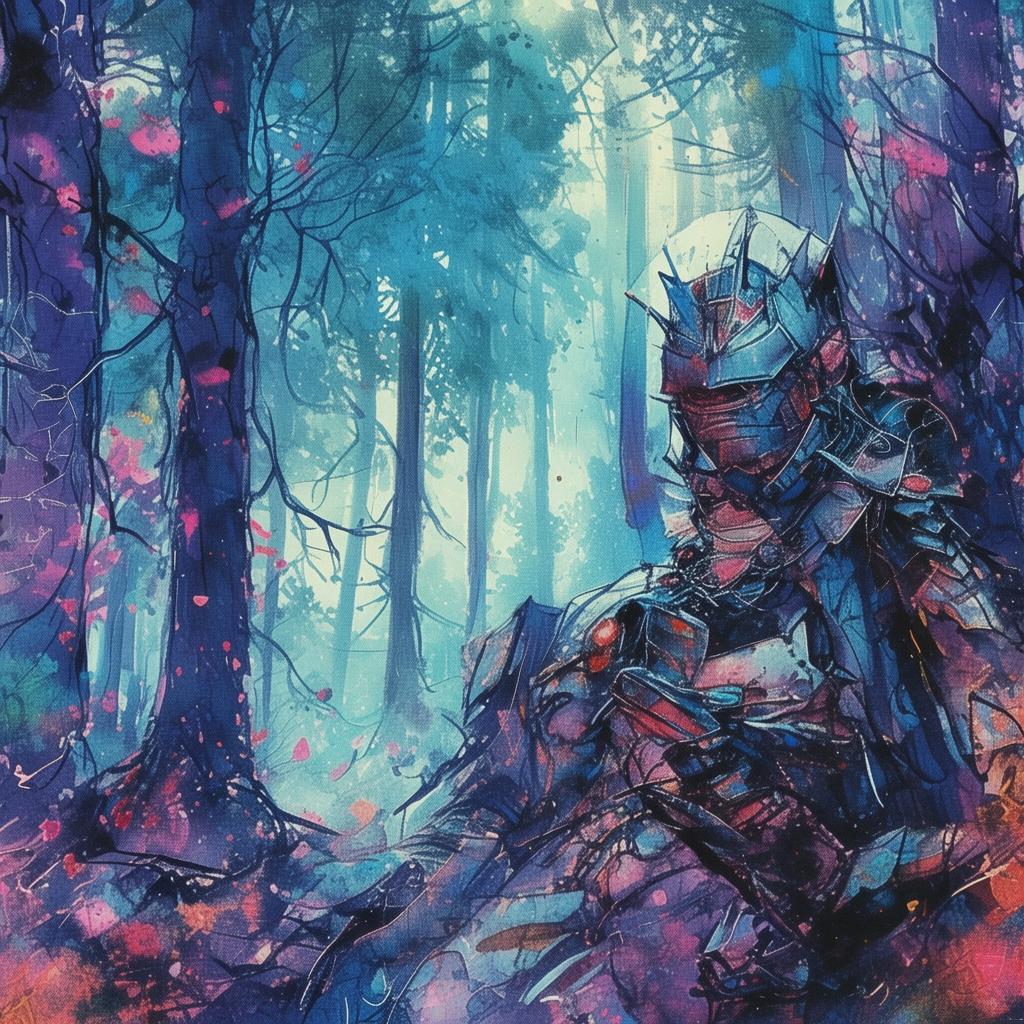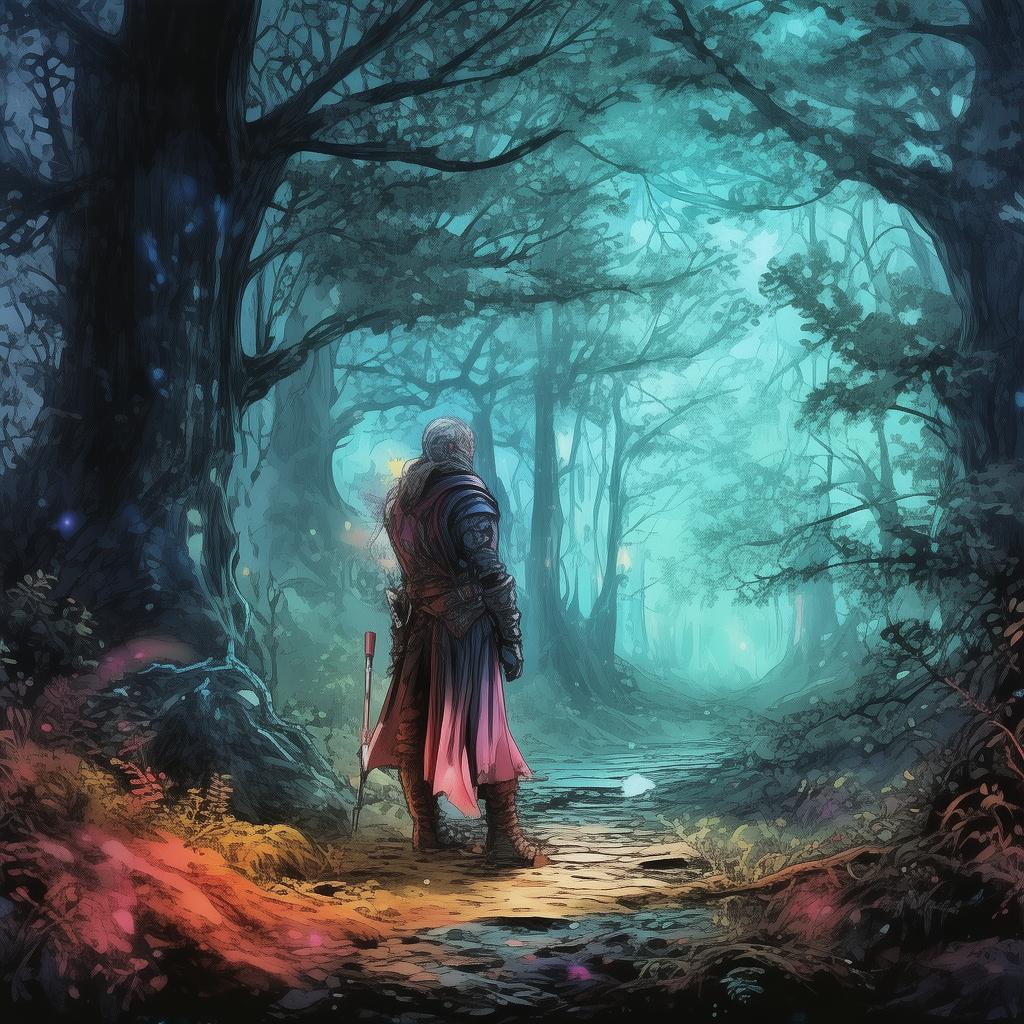The Enchanted Mooncake: A Tale of Forbidden Love and Revolution
In the bustling streets of Guangzhou during the tumultuous 1930s, the air was thick with the scent of spices and the sound of revolution. It was a time when the winds of change were sweeping across China, and the people were eager for freedom from the oppressive rule of the Japanese invaders. Amidst this chaos, there lived a Guangdong chef named Liang, whose culinary skills were as exquisite as his love for his homeland.
Liang was the head chef at the prestigious "Golden Phoenix" restaurant, a place where the elite of Guangzhou gathered to indulge in the finest Guangdong cuisine. His mooncakes, especially, were renowned for their intricate designs and rich flavors, a testament to his dedication to his craft. Yet, his heart was burdened by a forbidden love—a love for a woman named Mei, the daughter of a wealthy businessman who was also a member of the resistance movement.
Mei was a revolutionary at heart, her eyes filled with the fire of change and her spirit unyielding. She was the one who inspired Liang to create a mooncake that would become a symbol of the resistance, a dish that would unite the hearts of the people and challenge the oppressive regime.

One moonlit night, Liang gathered his closest confidants in the kitchen of the Golden Phoenix. "We must create a mooncake that speaks of our struggle," he declared. "A mooncake that will become a beacon of hope for our people."
The chef began to work with the precision of a master. He mixed the flour, sugar, and lard, rolling the dough into perfect circles. He then filled each with a rich, sweet paste, a blend of red bean and lotus seed, a nod to the red flags of the revolution. But it was the outer layer that would make this mooncake unique.
Liang took a deep breath and began to mold the mooncake, shaping it into the form of a lotus flower, a symbol of purity and rebirth. He then carefully etched a secret message into the surface, a message that would only be understood by those who knew the code.
As the mooncake baked in the oven, the message became visible: "Unite and rise against tyranny."
The mooncake was a masterpiece, a culinary art that spoke of the chef's love for his country and his people. It was a symbol of hope, a beacon that would light the way for those who sought freedom.
Mei, who had been watching Liang's every move, approached him with a knowing smile. "It is perfect," she whispered. "This will be the symbol of our resistance."
The next day, the mooncake was unveiled at the Golden Phoenix, and it quickly became a sensation. The elite of Guangzhou marveled at its beauty and taste, but few knew of its true significance. The message spread like wildfire, and soon, it was the talk of the town.
The Japanese invaders, who had been monitoring the activities of the resistance, became aware of the mooncake's true purpose. They ordered the arrest of Liang and Mei, but the couple managed to escape into the night.
As they fled, Liang handed Mei the mooncake. "Keep it safe," he said. "It will lead us to freedom."
The couple's journey was fraught with danger, but the mooncake was always with them, a reminder of their cause and their love. They traveled through the countryside, evading capture, until they finally reached the heart of the resistance.
There, the mooncake was presented to the leaders of the movement. It was a symbol of unity and hope, a testament to the power of love and the indomitable spirit of the people.
The revolution eventually succeeded, and China was freed from the yoke of Japanese occupation. The mooncake, once a forbidden love token, became a symbol of the nation's triumph. It was a dish that would be made and shared every year, a reminder of the sacrifices made and the love that brought the people together.
Liang and Mei, now married, continued to operate the Golden Phoenix, but their mooncake was always the centerpiece of their menu. It was a dish that spoke of their love, their struggle, and their triumph.
And so, the tale of the Enchanted Mooncake lived on, a story of forbidden love and revolution, a tale that would inspire generations to come.
✨ Original Statement ✨
All articles published on this website (including but not limited to text, images, videos, and other content) are original or authorized for reposting and are protected by relevant laws. Without the explicit written permission of this website, no individual or organization may copy, modify, repost, or use the content for commercial purposes.
If you need to quote or cooperate, please contact this site for authorization. We reserve the right to pursue legal responsibility for any unauthorized use.
Hereby declared.
